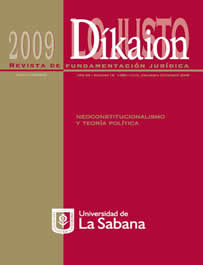Notions of Command and Obedience on Julien Freund’s Political Theory
Keywords:
Julien Freund, power, violence, sovereignty, decisions, right of resistance.Abstract
This study, framed in a much broader investigation of political realism in ancient and modern authors (from Kautilya and Thucydides to Raymond Aron and Carl Schmitt), presents one of the more important aspects of political philosophy by Julien Freund : the dialectic command-obedience, adopted by the French writer as supposition of any political action. According to Freund, human nature exists and is an essential fact in politics. Power is a part of politics, not as a mere thing, but as a highly dynamic reality that determines the politics in a double sense. There is power always, regardless of who holds it. An essential division among men is part of the essence of power: some people command and others obey; consequently politics is always characterized, at least on this sense, by an inexorable submission of wills. Some contemporary ideologies have looked down on any expression of power, assuming its intrinsic evil. Certain normative conceptions of public law have fallen into this trap, as Freund affirms; because they do not take into account the fact that command includes a moment of decision which cannot be reduced to any attempt of ordinary judgment.
Downloads
How to Cite
Issue
Section
License
1. Proposed Policy for Journals That Offer Open Access
Authors who publish with this journal agree to the following terms:
This journal and its papers are published with the Creative Commons License Attribution-NonCommercial-NoDerivatives 4.0 International (CC BY-NC-ND 4.0). You are free to share copy and redistribute the material in any medium or format if you: give appropriate credit, provide a link to the license, and indicate if changes were made; don’t use our material for commercial purposes; don’t remix, transform, or build upon the material.






